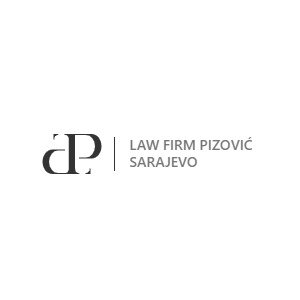Best Employment Rights Lawyers in Sarajevo
Share your needs with us, get contacted by law firms.
Free. Takes 2 min.
List of the best lawyers in Sarajevo, Bosnia and Herzegovina
About Employment Rights Law in Sarajevo, Bosnia and Herzegovina
Employment Rights in Sarajevo, Bosnia and Herzegovina, are governed primarily by the Labor Law of the Federation of Bosnia and Herzegovina. This legal framework ensures fundamental rights for employees, including rights related to employment contracts, work conditions, remuneration, working hours, occupational safety, and the termination of employment. The law seeks to ensure a fair relationship between employers and employees, protect workers’ rights, and promote fair labor practices.
Why You May Need a Lawyer
The complexities of employment law can demand expert legal advice to navigate potential disputes or misunderstandings between employers and employees. Situations where legal help may be needed include:
- Negotiating employment contracts and understanding employment terms.
- Addressing unfair treatment or discrimination in the workplace.
- Resolving disputes concerning wrongful termination or constructive dismissal.
- Seeking compensation for workplace injuries or unsafe working conditions.
- Assisting with disputes over wages, overtime payments, or benefits.
- Understanding rights in the context of layoffs, redundancies, or restructuring.
Local Laws Overview
Key aspects of employment-related laws in Sarajevo include:
- Employment Contracts: These must be in writing and contain specific elements, such as job description, start date, duration, remuneration, and working conditions.
- Working Hours: The standard workweek is 40 hours, with provisions for overtime, night work, and shifts.
- Minimum Wage: The government sets minimum wage standards to ensure fair pay.
- Termination and Notice Periods: Rules govern contract termination, including severance and required notice periods.
- Discrimination and Harassment: Laws exist to protect workers from discrimination and workplace harassment based on gender, age, disability, and other factors.
- Occupational Safety: Regulations demand employers maintain safe and healthy working environments.
Frequently Asked Questions
What are the legal requirements for an employment contract in Bosnia and Herzegovina?
Employment contracts must be written, clearly stating job roles, responsibilities, remuneration, and working conditions. Both parties should understand and agree to the terms before signing.
How is overtime pay regulated?
Overtime work is allowed under certain conditions and must be compensated with additional pay, usually at a rate higher than regular working hours.
What protections exist against workplace discrimination?
Employment laws strictly prohibit discrimination based on gender, ethnicity, religion, age, disability, or other statuses. Individuals facing discrimination can lodge complaints with labor inspectors or pursue legal action.
Can an employer terminate an employment contract without cause?
No, employers need valid reasons to terminate a contract. Typical grounds include redundancy, misconduct, or inability to perform tasks due to health reasons, with appropriate notice and severance pay, if applicable.
What is the procedure for reporting workplace safety concerns?
Employees should report safety concerns to their employer first. If unresolved, they can escalate their concerns to local labor inspectors or relevant organizations responsible for occupational safety.
Are there specific protections for pregnant employees?
Yes, prenatal and postnatal rights ensure that pregnant employees are protected from discrimination, with provisions for maternity leave and protection against unfair dismissal.
How are disputes about unpaid wages handled?
Employees can address unpaid wages by initially discussing with their employer. If unresolved, legal avenues include filing a complaint with the labor inspectorate or pursuing a civil lawsuit.
Can employees work remotely under current employment laws?
While not specifically legislated, employers and employees can agree on remote work terms, ensuring they comply with general labor laws and contract stipulations.
How long is maternity leave in Bosnia and Herzegovina?
Maternity leave typically lasts 52 weeks, with at least 42 days mandated post-delivery. Fathers or other caregivers may also have rights to parental leave.
Are there any laws about workplace harassment?
Yes, harassment is considered a form of discrimination and is prohibited by law. Employees experiencing harassment can seek legal recourse by reporting to labor authorities or initiating court proceedings.
Additional Resources
Several organizations and governmental bodies can provide assistance or further information on employment rights:
- The Ministry of Labor, Social Policies, Displaced Persons, and Refugees of Sarajevo Canton.
- The Labor Inspectorate of the Federation of Bosnia and Herzegovina for regulatory enforcement.
- The Trade Unions Confederation of BiH for worker advocacy and support.
- Non-governmental organizations specializing in labor rights and legal aid.
Next Steps
If you require legal assistance regarding employment rights, consider taking the following steps:
- Document all relevant details: Gather employment contracts, correspondence, and any evidence related to your employment issue.
- Contact a labor rights organization or trade union for advice and support.
- Consider consulting with a lawyer specializing in employment law for personalized legal advice.
- If appropriate, file a formal complaint with the labor inspectorate.
- Stay informed about your rights and responsibilities under current employment laws.
Lawzana helps you find the best lawyers and law firms in Sarajevo through a curated and pre-screened list of qualified legal professionals. Our platform offers rankings and detailed profiles of attorneys and law firms, allowing you to compare based on practice areas, including Employment Rights, experience, and client feedback.
Each profile includes a description of the firm's areas of practice, client reviews, team members and partners, year of establishment, spoken languages, office locations, contact information, social media presence, and any published articles or resources. Most firms on our platform speak English and are experienced in both local and international legal matters.
Get a quote from top-rated law firms in Sarajevo, Bosnia and Herzegovina — quickly, securely, and without unnecessary hassle.
Disclaimer:
The information provided on this page is for general informational purposes only and does not constitute legal advice. While we strive to ensure the accuracy and relevance of the content, legal information may change over time, and interpretations of the law can vary. You should always consult with a qualified legal professional for advice specific to your situation.
We disclaim all liability for actions taken or not taken based on the content of this page. If you believe any information is incorrect or outdated, please contact us, and we will review and update it where appropriate.











